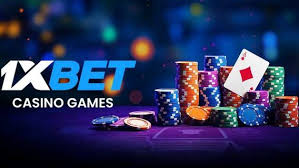Mastering sports betting Strategies, Psychology, and Responsible Play

Sports betting has evolved into a sophisticated activity that blends statistical analysis, emotional control, and market awareness — and modern tools make it easier than ever to engage with events around the world. For many bettors, mobile access is essential, which leads some to explore various platforms and apps, including options like sports betting 1xbet apk for on-the-go wagering. Whether you are a newcomer or a seasoned bettor, understanding the fundamentals and developing disciplined habits are critical to seeing consistent results over time.
At its core, sports betting is about assessing the likelihood of an outcome and finding value in the market price. Bookmakers set odds to reflect their view of probability while factoring in margin and anticipated action. Successful bettors seek situations where their assessment of probability differs from the implied probability reflected in the odds. This gap — the edge — is where profitable opportunities live. To get there, bettors combine data analysis, scouting information, situational factors, and sometimes niche expertise in specific leagues or bet types.
One of the most important practical principles is bankroll management. Treat your betting funds like a portfolio: decide in advance how much you can afford to risk, and divide that into units. A common conservative approach is to wager a small fixed percentage of your bankroll on each bet — often 1–2% — adjusting unit size as the bankroll grows or shrinks. This reduces the risk of ruin and prevents emotional decision-making after a losing streak. Disciplined staking plans help you survive variance and position yourself to capitalize on opportunities when they arise.
Odds formats (decimal, fractional, moneyline) and implied probability are basic literacy for any bettor. Converting odds to implied probability allows quick comparison with your estimated probability for the same event. For example, decimal odds of 2.50 imply a 40% chance (1 / 2.50). If your model or analysis suggests the true probability is 50%, the value is positive and the bet could be justified. Always account for the bookmaker’s margin — their overround — when estimating true market probability.
Research and information gathering matter. For team sports, consider injuries, lineups, travel schedules, coaching changes, motivation, head-to-head history, and match tempo. For individual sports, like tennis or boxing, pay attention to surface, conditioning, recent play, and psychological factors. Advanced bettors incorporate analytics and models: expected goals (xG) in soccer, pace-adjusted metrics in basketball, or player efficiency ratings. However, data without context can mislead; combine quantitative models with qualitative insight to refine predictions.

Specialize where you can. The market is efficient at the top levels and for popular events, but inefficiencies often exist in smaller leagues, niche markets, or futures markets with complex variables. Developing deep knowledge in a specific area — a particular league, youth competitions, or prop markets — increases the chance of spotting edges that broader-market bettors miss. Specialization also makes scouting quicker and improves the signal-to-noise ratio in your analysis.
Live betting introduces new dimensions and opportunities. In-play markets react to events and momentum shifts, sometimes mispricing outcomes in the immediate aftermath of a goal, injury, or weather change. Traders and algorithms move faster than most recreational bettors, but disciplined live bettors can exploit slow market adjustments or hedging opportunities. Success in live betting requires quick judgment, strong situational awareness, and, ideally, reliable real-time data feeds.
Psychology is often the decisive factor between bettors who make money and those who do not. Cognitive biases like confirmation bias, recency bias, and the gambler’s fallacy distort judgment. Emotions drive poor choices after wins (overconfidence) and losses (chasing). Implementing rules — such as predefined staking, no-bet cooling-off periods after a loss streak, and objective record-keeping — helps neutralize psychological pitfalls. Keep a detailed betting log: date, event, stake, odds, market, rationale, and outcome. Reviewing this log periodically uncovers strengths, weaknesses, and patterns in your decision-making.
Responsible gambling must be non-negotiable. Set deposit and loss limits, never wager money needed for essentials, and seek help if betting becomes compulsive. Many jurisdictions offer self-exclusion tools and support services. Treatment is most effective when sought early; don’t hesitate to use available resources if gambling starts to harm your finances, relationships, or mental health.
Legal and regulatory awareness is essential. Sports betting laws differ widely by country and sometimes by region. Before placing bets, verify that the operator is licensed and regulated in your jurisdiction, understand tax obligations on winnings, and be aware of rules that protect consumers. Regulated markets typically offer stronger safeguards, dispute resolution mechanisms, and integrity monitoring compared to unregulated alternatives.

Technology and automation have reshaped the betting landscape. Predictive models, bots, and line-shopping tools let professional bettors react to small market inefficiencies. Line shopping — comparing odds across multiple bookmakers — is one of the simplest ways for recreational bettors to increase expected value. Use sportsbooks and betting exchanges strategically: exchanges can provide better value on some markets since they often have lower built-in margins and allow laying of outcomes.
Bankroll growth typically stems from long-term edge and consistency rather than occasional big wins. Many profitable bettors emphasize incremental gains achieved through rigorous process control, disciplined staking, and continuous learning. Avoid systems that promise guaranteed returns or rely on lucky streaks; instead, focus on building a reproducible edge. Backtesting models against historical data, but also forward-test with small stakes before scaling, reduces the risk of overfitting and reveals practical challenges in live environments.
Social and community aspects can be helpful: forums, respected tipsters, and analytic blogs provide perspectives and spur new ideas. However, treat tips with skepticism and evaluate sources critically. Peer groups can be valuable for accountability and exchanging ideas, but do not follow them blindly. Your bankroll and risk tolerance are personal; adapt any advice to your circumstances and objectives.
Finally, measure success properly. Winning percentage alone is misleading; profit and loss relative to stake, return on investment (ROI), and volatility are more informative. A low hit rate with strong value can outperform a high hit rate with poor odds. Set realistic goals and timeline expectations. Sports betting can be a rewarding intellectual pursuit and, for disciplined practitioners, a sustainable source of income, but it demands humility, patience, and constant refinement.
In summary, a thoughtful approach to sports betting blends probability assessment, disciplined bankroll management, careful market selection, and emotional control. Embrace continuous learning, use technology wisely, respect legal boundaries, and prioritize responsible play. Over time, these elements form the foundation for more consistent outcomes and a healthier relationship with betting activities.
